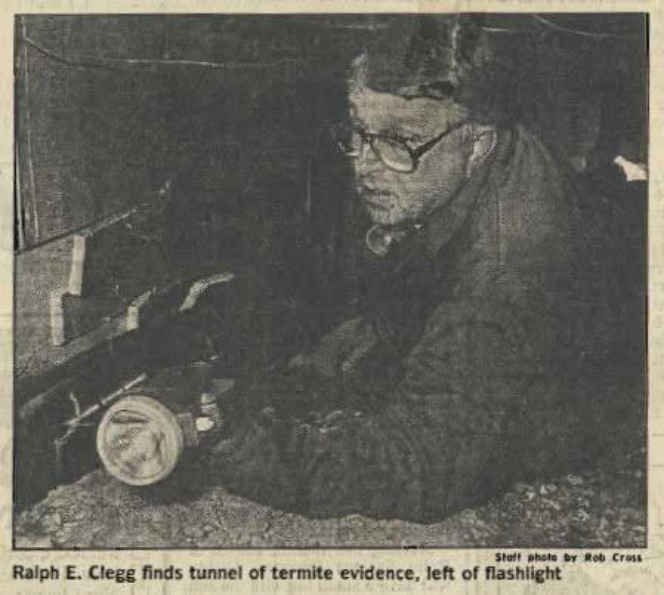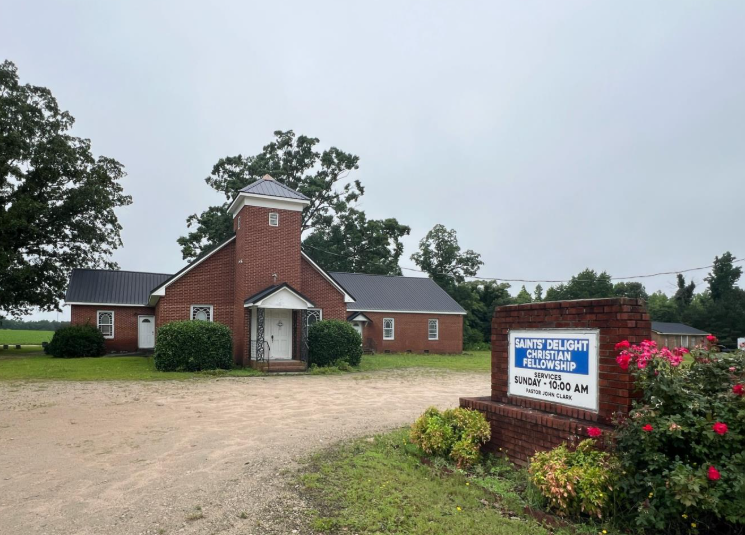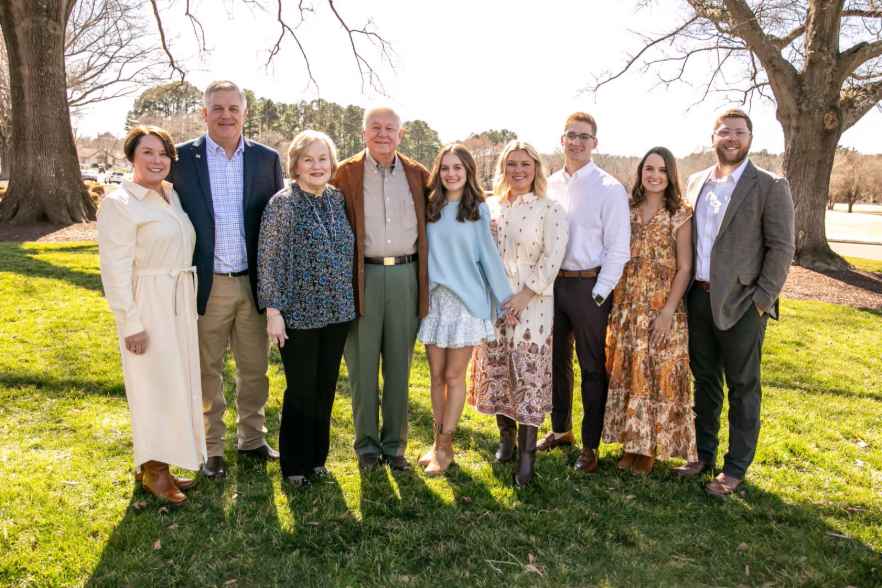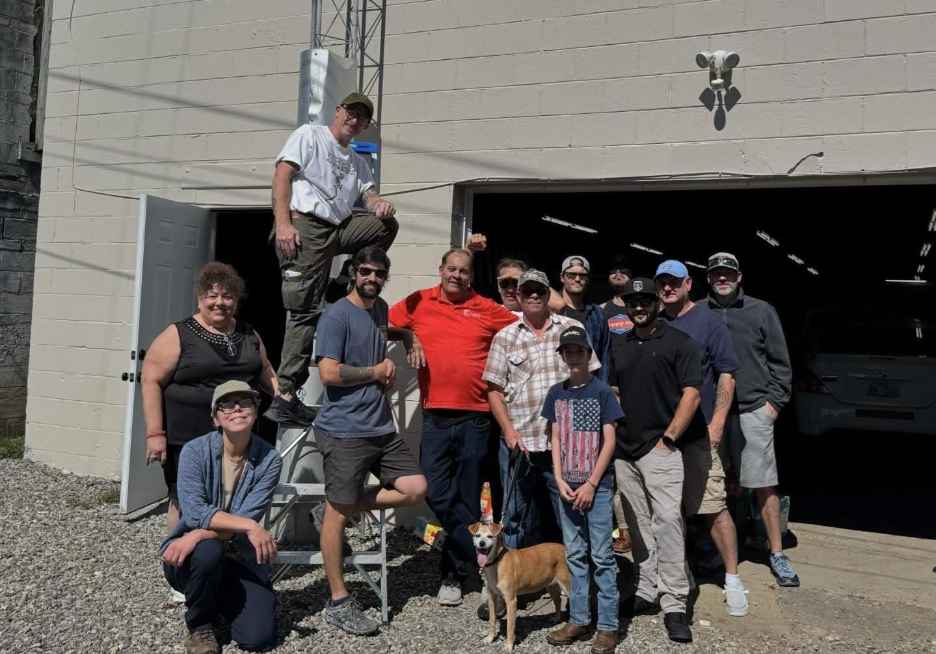In today’s pest control industry, it’s increasingly rare to find a company that hasn’t been swallowed up by a national conglomerate or restructured under a private equity firm. Corporate buyouts have become the norm, with many once-local companies now run by boardrooms and out-of-state investors. But Clegg’s Termite & Pest Control is—and always has been—different.
We’re proud to say that Clegg’s is 100% family-owned and operated, with four generations of hands-on leadership, heart, and commitment behind our name. From the small-town beginnings of a church pastor to one of North Carolina’s most trusted pest control providers, our journey has always been powered by service, community, and family—not profit margins or shareholders.

From the Pulpit to Pest Control: How It All Began
Our story begins in the early 1960s, in a small church in rural North Carolina. Reverend Ralph E. Clegg, the church’s pastor, faced a challenge that many property owners are all too familiar with—a termite infestation. Estimates from professional pest control companies were simply too costly for the small congregation to manage. But rather than accept defeat or patch over the problem, Rev. Clegg made a bold decision: he would learn how to fix it himself.
With guidance from a friend at NC State University and countless hours of research, Rev. Clegg armed himself with knowledge and equipment. With help from church members, he treated the church successfully eliminating the termites and preserving a house of worship that meant everything to the community.
What began as an act of service quickly grew into a calling. Word spread, and soon neighbors, friends, and fellow church members were reaching out to Rev. Clegg for help with their own pest problems. Recognizing the growing need, he founded Clegg’s Termite & Pest Control in 1964, operating from his home with a simple but powerful mission: to make professional pest control more affordable, accessible, and personal.

Built by Family, Not by Corporations
Unlike so many other pest control companies that eventually sell out to national chains or private equity firms, Clegg’s has always been—and will always be—family-run.
While other companies chase bottom lines, we’ve spent nearly six decades chasing excellence in service, safety, and customer care. From day one, we’ve built our business around a core belief:
“Satisfied Customers Make Our Business.”
This is more than a tagline—it’s our compass. It’s why we’ve stayed independent, and why we’ve passed the torch not to investors or outsiders, but to our own children and grandchildren.

A Legacy Carried Forward: From Phil to Philip
In 1970, Rev. Clegg’s son, Phil Clegg, joined the company after working as a pilot for the North Carolina Forest Service. Phil, a graduate of NC State with a degree in Forestry, brought not only technical expertise but also leadership and vision. With his aviation background, he began flying to branch locations across the state, a unique way to stay connected to team members and customers while keeping an eye on operations firsthand.
Under Phil’s leadership, Clegg’s expanded services to include comprehensive pest control beyond just termites. With a strong emphasis on education, prevention, and respect for the customer, Phil helped Clegg’s earn its place as a respected name throughout North Carolina.
In 1984, Clegg’s was honored as “Pest Control Company of the Year,” and Phil himself served as president of both the North Carolina Pest Control Association and the National Pest Management Association, continuing the Clegg tradition of industry leadership and excellence.
But perhaps Phil’s greatest contribution is the way he upheld his father’s values—and passed them down to the next generation.
Third Generation and Growing: A Family Affair
Now under the leadership of Philip Clegg II, the third generation to carry the family name and vision, Clegg’s Termite & Pest Control continues to grow while staying true to its roots.
As a young boy, Philip Clegg II spent his summers learning everything there was to know about Clegg’s Termite & Pest Control, working closely under the supervision of his father and several long-time employees who helped shape the company’s foundation. These early experiences instilled in him a deep appreciation for the family business and the importance of quality service. After graduating from NC State University, Philip officially joined the company and continued to build on the legacy started by his grandfather. Now serving as President, he brings fresh, innovative ideas to the table while honoring the company’s core values—modernizing operations and ensuring that Clegg’s remains a trusted name in pest control for generations to come.
What truly sets us apart, however, is that our family involvement hasn’t stopped with leadership—it’s grown into a deeply woven fabric across multiple generations.
The fourth generation of the Clegg family is already actively involved in day-to-day operations:
- Piper Allen, daughter of Philip II, is our Marketing Manager, bringing energy, creativity, and digital strategy to our trusted family brand. She ensures our messaging stays fresh, engaging, and connected to the communities we serve.
- And even more remarkably, we’ve gone so far as to outsource family involvement— because family is who we trust most. Bella Debo, Philip’s other daughter and Piper’s sister, works at a professional marketing agency and serves as our account manager. The two sisters now collaborate directly on all marketing efforts for Clegg’s, creating a powerful dynamic that blends internal insight with professional expertise. This unique sister partnership ensures that our brand voice is not only authentic but also strategic and forward-thinking.
When we say family is involved at every level—we mean it.

Treating Employees Like Family, Too
Our definition of “family” doesn’t stop at blood. One of the most important parts of Clegg’s culture is how we treat our employees like family, too. We’re proud to have team members who have been with us for 10, 20, even 30+ years. In an industry where turnover is common, our employee loyalty speaks volumes.
Many of our technicians, office staff, and managers have grown with us, built careers here, and celebrated life milestones as part of the Clegg’s family. We invest in our people the same way we invest in our customers—by building relationships, offering opportunities for growth, and treating everyone with respect.
That kind of dedication can’t be bought—and it’s exactly why our service stands apart.
Local Service You Can Count On
Clegg’s now has branch locations across North Carolina, each one staffed by trained technicians who live and work in the same communities we serve. Whether we’re protecting a family home from bed bugs or treating a commercial property for rodents, we approach every job with the same dedication and attention to detail that Rev. Clegg brought to that very first church treatment.
We are proud to offer:
- Residential and commercial pest control
- Termite inspections and treatments
- Mosquito control
- Bed bug solutions
- Moisture control solutions
- And more—backed by decades of expertise.
Thanks to our free estimate options, pest ID by text, and user-friendly customer service, we make it easy for you to get the help you need—fast.
Not Corporate-Owned. Not a Franchise. Just Clegg’s.
As more pest control companies become indistinguishable from parts of nationwide conglomerates, Clegg’s stands proudly independent. We are:
- Not a corporate buyout
- Not private equity-backed
- Not a franchise
We answer to our customers and our conscience—not investors. That independence allows us to do what’s right for your home, your family, and your business—every time.
When you choose Clegg’s, you’re supporting a true local business—one where your phone call might be answered by a family member, and where your pest technician is part of a team that’s been doing this for generations.

What’s Next? More Growth, Same Values.
As we continue to evolve—adding new tools, new technologies, and new team members—we do so with an unwavering commitment to the people who built us: our family and our customers.We’ll never lose sight of the values that got us here: honesty, hard work, and the belief that when you take care of people, success follows.So whether you’re a long-time customer or looking for a pest control partner you can trust, know this:Clegg’s is built by family.
Clegg’s is owned by family.
And Clegg’s will treat your family like one of our own.
